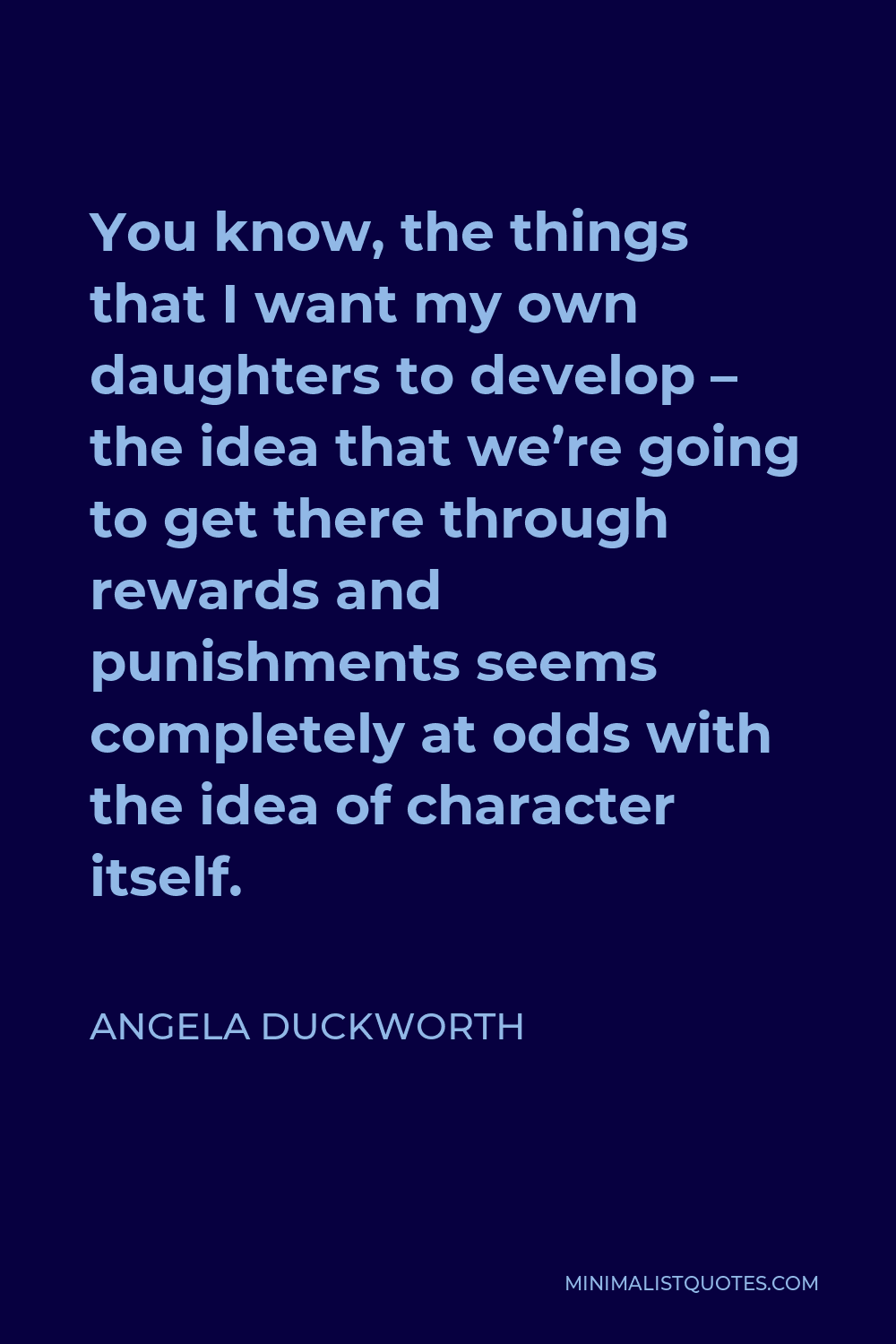Nobody gets to be good at something without effort, no matter what your aptitude is.
ANGELA DUCKWORTHYou know, the things that I want my own daughters to develop – the idea that we’re going to get there through rewards and punishments seems completely at odds with the idea of character itself.
More Angela Duckworth Quotes
-





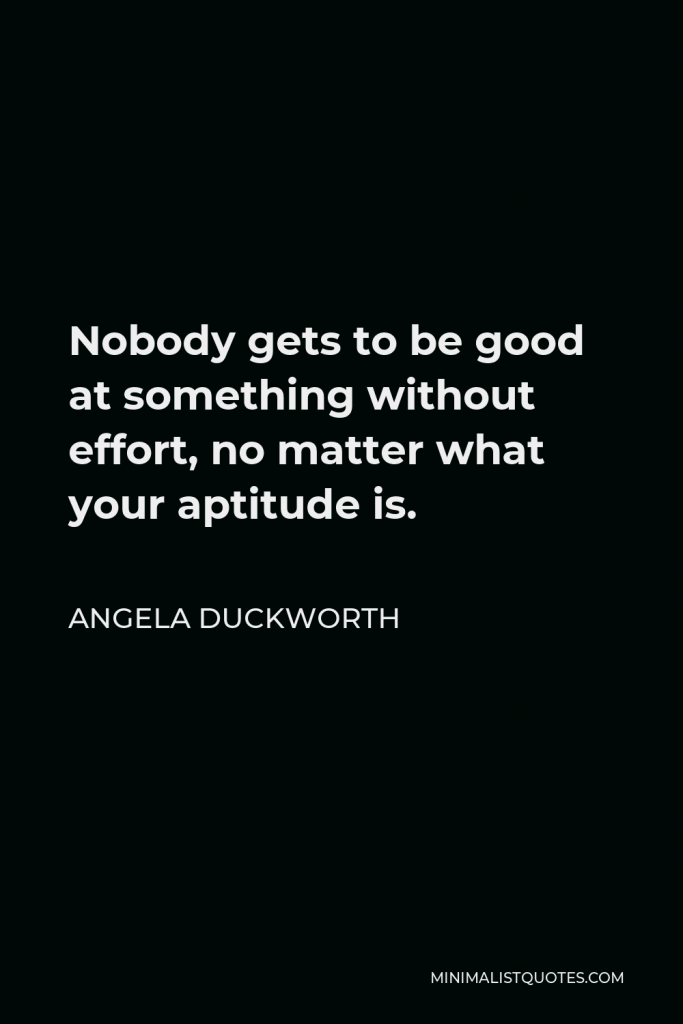

-







There is a fluency and an ease with which true mastery and expertise always expresses itself, whether it be in writing, whether it be in a mathematical proof, whether it be in a dance that you see on stage, really in every domain. But I think the question is, you know, where does that fluency and mastery come from?
ANGELA DUCKWORTH -







I know a lot of CEOs who are looking for three- to four-year varsity athletes – not necessarily because these people are going to be doing pushups or spiking volleyballs in the workplace, but because they’re looking for that continuity, that person who was gritty about something.
ANGELA DUCKWORTH -







You cannot will yourself to be interested in something you’re not interested in. But you can actively discover and deepen your interest.
ANGELA DUCKWORTH -





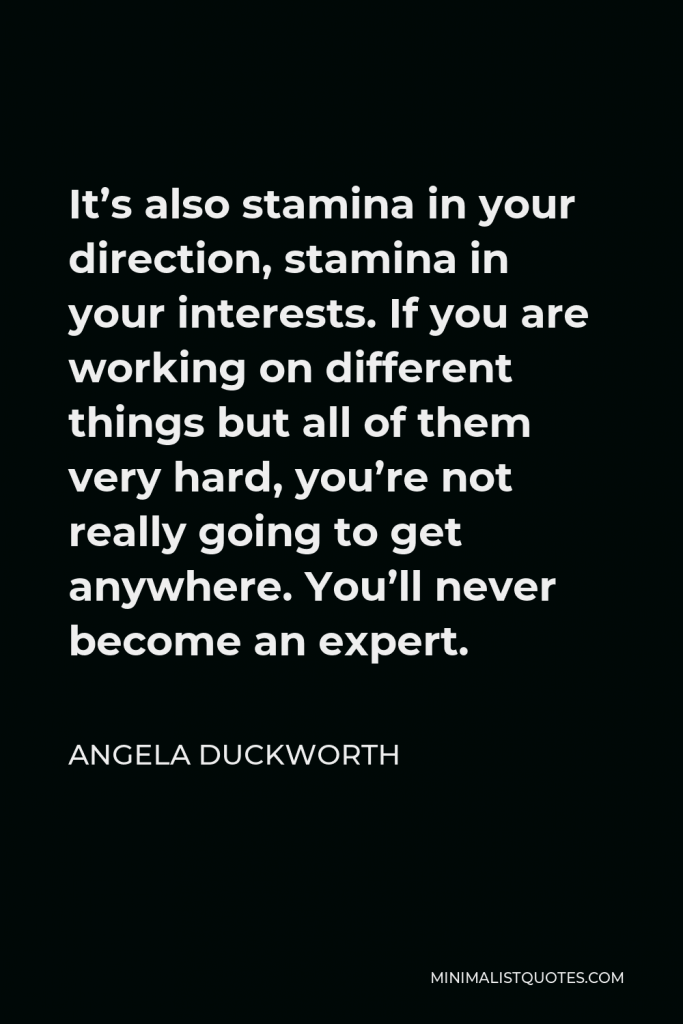

It’s also stamina in your direction, stamina in your interests. If you are working on different things but all of them very hard, you’re not really going to get anywhere. You’ll never become an expert.
ANGELA DUCKWORTH -





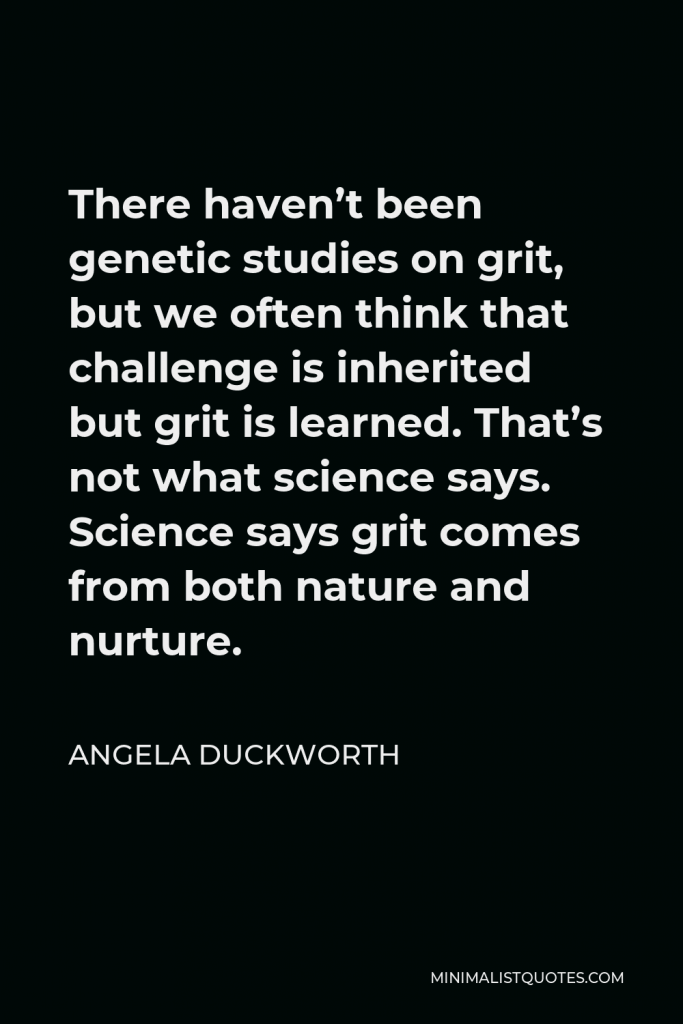

There haven’t been genetic studies on grit, but we often think that challenge is inherited but grit is learned. That’s not what science says. Science says grit comes from both nature and nurture.
ANGELA DUCKWORTH -





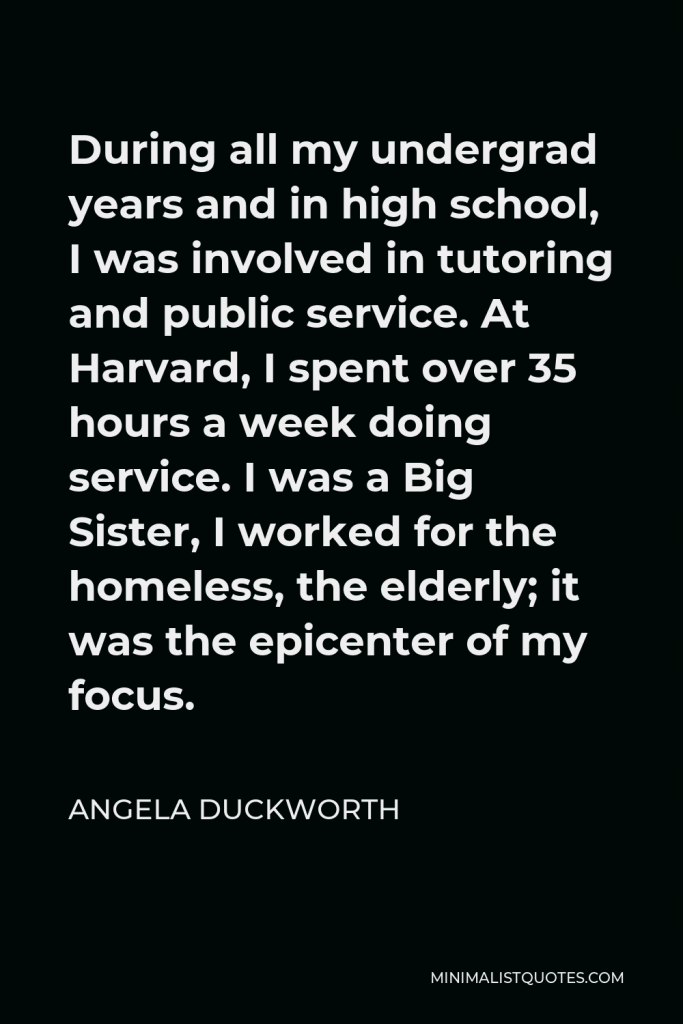

During all my undergrad years and in high school, I was involved in tutoring and public service. At Harvard, I spent over 35 hours a week doing service. I was a Big Sister, I worked for the homeless, the elderly; it was the epicenter of my focus.
ANGELA DUCKWORTH -







I do think that whatever ambition I may have had natively was amplified by my father’s clear valuing of it. I knew that was what my dad really cared about.
ANGELA DUCKWORTH -





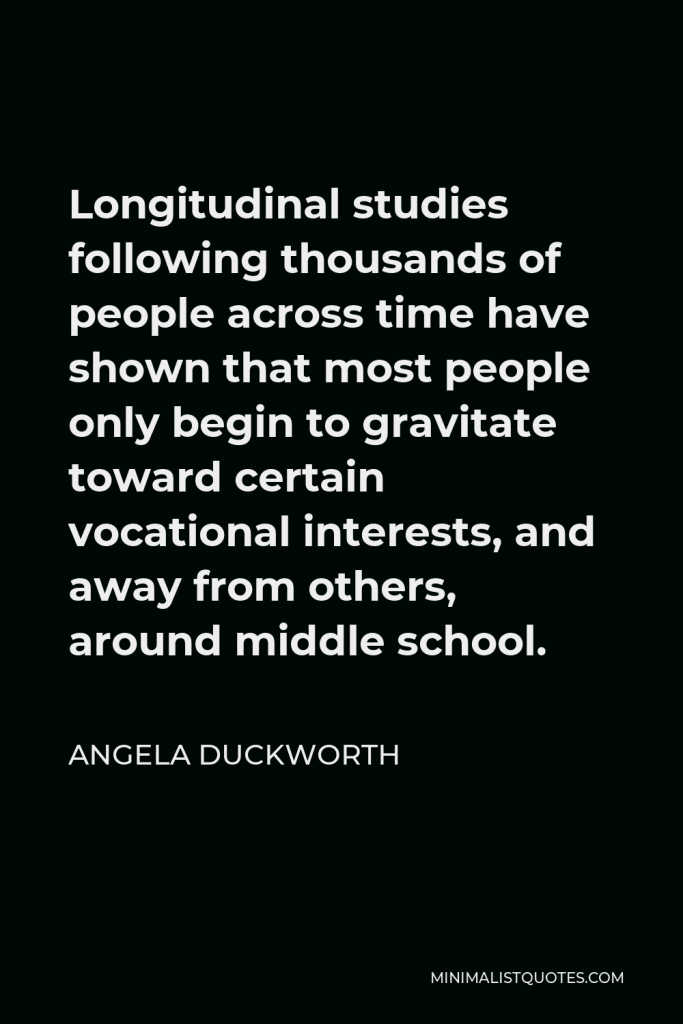

Longitudinal studies following thousands of people across time have shown that most people only begin to gravitate toward certain vocational interests, and away from others, around middle school.
ANGELA DUCKWORTH -





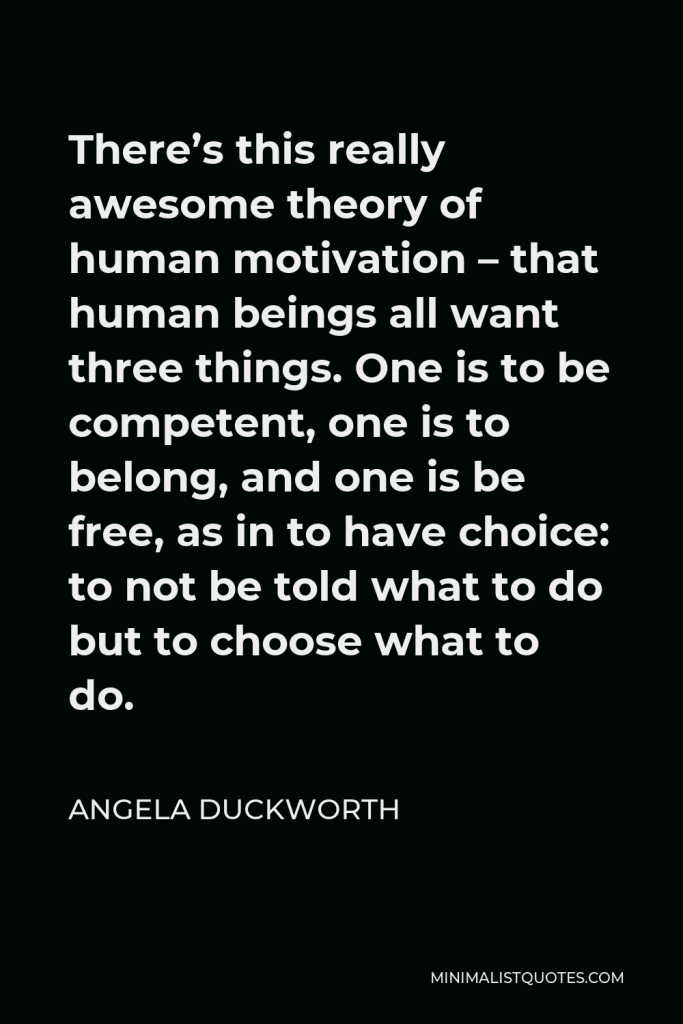

There’s this really awesome theory of human motivation – that human beings all want three things. One is to be competent, one is to belong, and one is be free, as in to have choice: to not be told what to do but to choose what to do.
ANGELA DUCKWORTH -





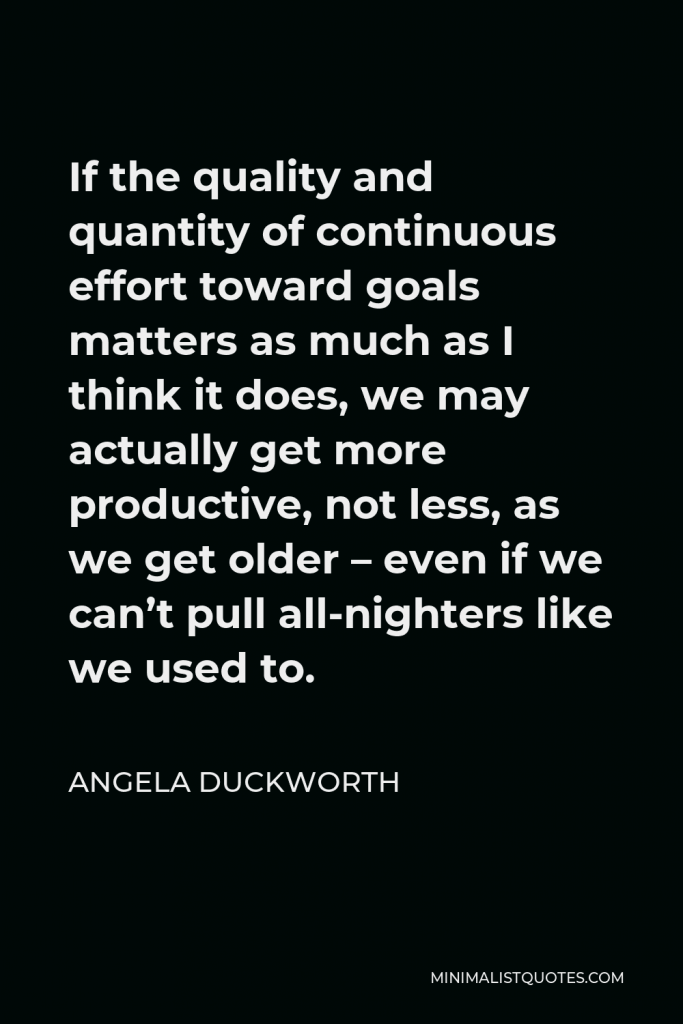

If the quality and quantity of continuous effort toward goals matters as much as I think it does, we may actually get more productive, not less, as we get older – even if we can’t pull all-nighters like we used to.
ANGELA DUCKWORTH -





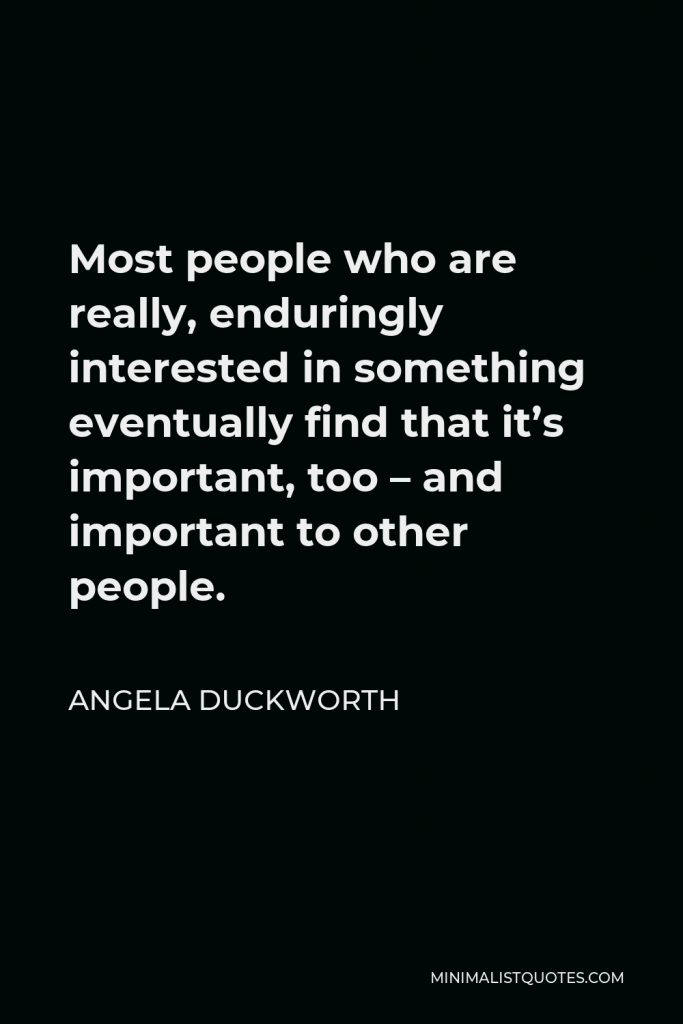

Most people who are really, enduringly interested in something eventually find that it’s important, too – and important to other people.
ANGELA DUCKWORTH -







Many, many individuals will report starting to form their lifelong interests around adolescence. Why that is, researchers don’t fully know. But if you can take a trip down memory lane and see what interested you, that’s at least a clue as to where your interest may begin to develop.
ANGELA DUCKWORTH -







I don’t spend a lot of time thinking about my genes because I can’t do anything about them.
ANGELA DUCKWORTH -





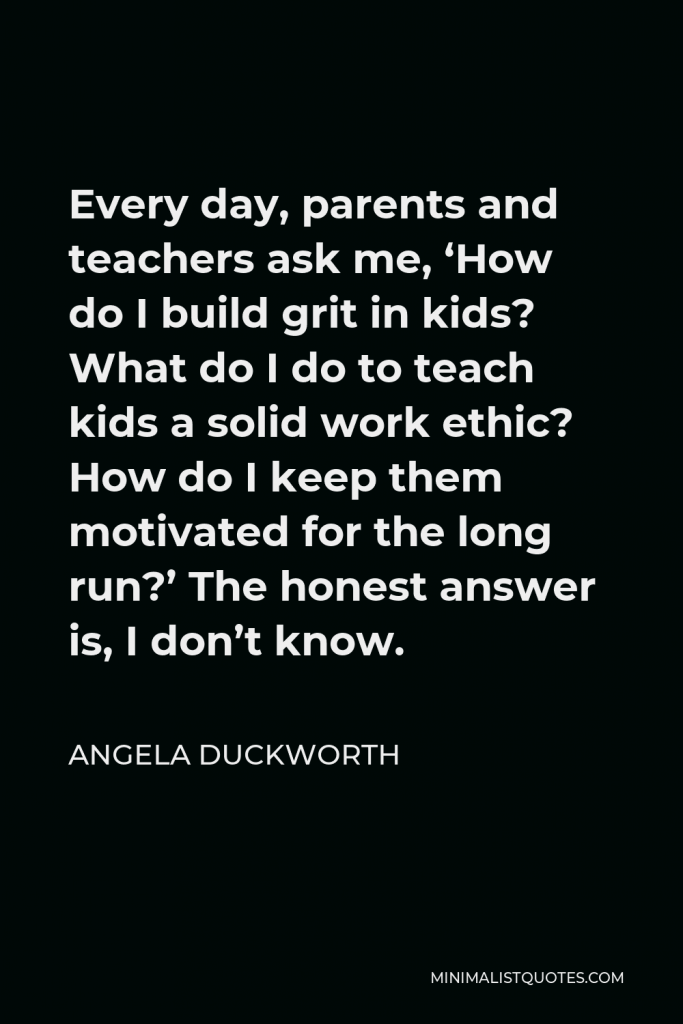

Every day, parents and teachers ask me, ‘How do I build grit in kids? What do I do to teach kids a solid work ethic? How do I keep them motivated for the long run?’ The honest answer is, I don’t know.
ANGELA DUCKWORTH -







I stayed for lunch for extra tutoring, gave kids my cell phone, and was available. In my first year of teaching,
ANGELA DUCKWORTH


